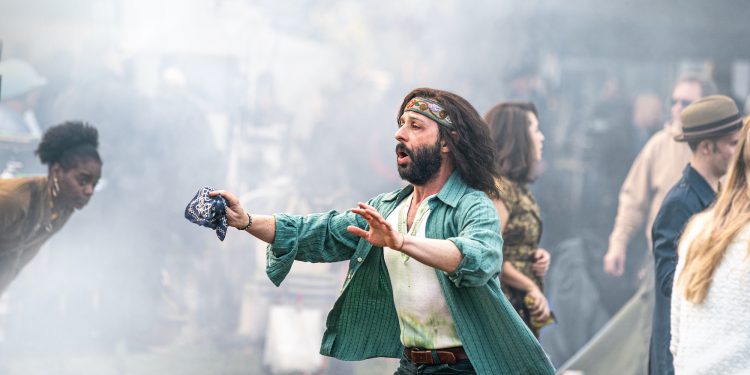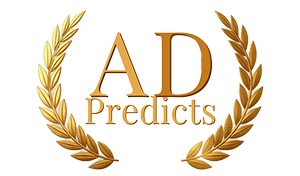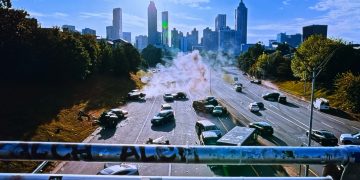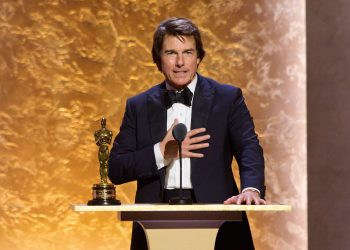Netflix’s The Trial of the Chicago 7 has been a bona fide awards contender since its streaming debut in September. It accumulated nominations at all the major awards shows this season, eventually going on to win major awards including Best Screenplay at the Golden Globes and prevailing with the Outstanding Cast in a Motion Picture Award at the Screen Actors Guild awards. It set its sights directly at the Best Picture Oscar – making history as Netflix’s first Best Picture win if able to win.
With all the accolades coming its way, how could one involved in the movie be uninterested in potential Oscar nominations? Rightfully so, editor Alan Baumgarten indulged like the rest of us on Oscar nomination morning. However, Alan had more at stake in the game than the rest of us clamoring to see if our favorite actor, writer, director or film were to be nominated, his name may be called! Luckily for Alan, he had the pleasure of hearing his name announced as a nominee for Best Film Editing for his fantastic work on Chicago 7.
Awards Daily spoke with Baumgarten fresh off his second Oscar nomination and went in-depth with the editor on his experience and journey working on the Netflix film.
Awards Daily: Hello Alan! First off, I would like to congratulate you on your Oscar nomination for The Trial of the Chicago 7!
Alan Baumgarten: Thank you, Jordan! I really appreciate it.
AD: Absolutely! I like to start out by asking nominated creatives how they feel when they receive word they’ve been nominated for an award, especially a nomination as grand as an Academy Award. I know this is your second Oscar nomination, the first being for American Hustle, but was there any anticipation leading up to nominations morning since Chicago 7 has been so heavily apart of the chatter of awards season?
AB: Well, it was equally as exciting this time as it was the last time for American Hustle, I have to say! I didn’t have any sense or knowledge it would happen before. There’s the hope that you may be nominated, so this time I decided I’d check it out and actually watch the nomination announcements. The film was getting a lot of recognition and I was hoping for the picture itself, and for writing and acting. There could be nominations in store and I got wrapped up in the excitement. The reaction I had when I learned I was a nominee was pure excitement and disbelief at the same time because it’s really is a shock, no matter how many times you may receive a nomination. It hits like a sense of elation, but surprised you can be even experiencing it. Your feet are off the ground, head high in the clouds in a surreal state just pinching yourself that this dream is coming true! It’s just so exciting and I’m enjoying it even up to this minute!
AD: You should be enjoying every minute! I’d love to know how you got involved int he early stages of The Trial of the Chicago 7. I know you collaborated with Aaron Sorkin on Molly’s Game back in 2017. So did working together on that film lead to this reunion on Chicago 7? How did that play out?
AB: Yes it did! Since we worked on Molly’s Game, we had a great connection and chemistry and really enjoyed working together. There were a couple of other editors involved with Chicago 7 originally, and due to scheduling conflicts they had to drop out thankfully leaving a space for me to come in and take over. In the beginning, I didn’t really know too much about Chicago 7 – it took me about a year after Molly’s Game to know this was going to be Sorkin’s next film. I got the call and luckily I was available and I immediately said “sign me up, I’m there!” I’m a big fan of dramas – films with historical and political context excite me even more so this was right up my alley! Having the chance to work with Aaron again was the icing on the cake, to be honest. I was very eager to work with him again, so I stayed in touch and had to figure out schedule.
The Trial of the Chicago 7 went through a few false starts, so it’s always tricky when you commit to a project then the scheduling may change at the last minute. When you’re trying to keep busy and keep working it gets challenging trying to navigate the scheduling lineup. So, I just stayed in contact with Aaron the year after I heard about it, then just came to the decision to stay available for it no matter what, because I knew this was a special project that I wanted to be apart of. I feel very fortunate that I was able to work with Aaron again!
AD: When production started to commence on the film was there any techniques or discussions you and Aaron had on the look of the film? Any specific visions or desires Sorkin strived for? When I spoke to (production designer) Shane Valentino and (set designer) Andrew Basemen, they informed me that Sorkin didn’t want any archival footage, he wanted to shoot as much as possible to have the film remain true to life. Aside from the archival footage at the very beginning of the film, did you find that task challenging?
AB: Jordan, that’s a great question and a loaded question and complicated in a couple of parts! The stock footage, the archival footage did evolve through the editing process. It was written into the prologue, the opening section of the film, and that was the only place where we had stock footage. So, we found our way with that. As for early instructions, I know Aaron has meetings with the production team, Production Designer, Cinematographer, about style and look. He talked to me a little bit in advance, but we didn’t talk about any specific style or any other film that much. The one film we did reference was Argo, since it’s a film that balanced historical events with great characters, great story and some humor. We knew we wanted to make this film play on a lot of levels, but we didn’t go into the details on how we’d achieve that stylistically. I know I followed Aaron’s script very carefully, but he gives me freedom to come up with a visual structure of shot selection, size of angles, and how I think the scene should be visually.
As for the stock footage, we went to that level a bit later in the process. Part way through editing, fairly early on, when we were assembling the scenes and we watched it through, we got to that first riot sequence and Aaron then decided to explore the possibility of using archival footage. So it was right then and there in the editing room that we decided let’s take that step. In anticipation of that happening, I had already begun pulling archival footage for myself – for the educational benefit of learning about that period and see certain accurate representations so I could be in the zone of capturing the moment and the feeling of what we were doing with our story, but also pulling individual shots in case we had the chance to use them, knowing they’d be great additions to the film, if needed and wanted. It happened pretty naturally weaving in that footage, but only in places where we felt it was right. For us, it made the most sense to use the footage for the riots. We had used archival footage in a few other places as well, most notably the scene depicting the death of Fred Hampton – we used actual crime scene photos, in which that decision came in much later in the process.
AD: Were there any challenges editing making Chicago in 2019 look like Chicago in 1969?
AB: As far as accuracy, we tried our best. We tried to catch all the big things like the newer condominiums or office building that may not have been there, we painted those out. There were some special effects to clean up the period and make it more accurate. We hoped we get everything perfect, including the right kind of cars that would match the time period and make sure only those things would be in frame while we were shooting.
As far as the timelines, we were representing 1968-1970 throughout this film. The script broke it down and had the layers of the time period reflected, so “present day” is basically the trial. Then we flashback to the events a year earlier, which were the riots and protests at the convention. The present day of the trial really had multiple locations as well, so that became an interesting launching pad for us. We had the court room, the conspiracy office where the defendants would be hanging out with the attorneys in the evening and on off days from court, and Abbie Hoffman (Sacha Baron Cohen) was doing his stand-up at the college campuses on the weekends and the nights during the trial. So we had those three different locations and they all served as launching points to do the flashbacks. It added a layer of complexities in terms of the timeframe shifts, because we went from different places and different narrators. We kind of upped the level of doing things multiple times from multiple points of view and that was inherent in the script and we worked really hard to make clear the audience knew who was telling the story and from what specific event and location they were telling it. That all was pretty mapped out, but it was a balance to decide how much flashback to include and how much of the past to represent. We want those characters to be experiencing it in the present day, but selectively showing the audience pieces of what the characters experienced.
AD: What sequence of the movie could change the tone of the movie if it were edited differently?
AB: I think you’re touching on something that would really be best explained in the dramatic effect of storytelling, and those scenes would be between Tom Hayden (Eddie Redmayne) and Abbie Hoffman. We worked very hard to develop their conflicting relationship, in terms of them being on the same side, basically they want to have the same result, but they get there very differently. Had we not been able to capture their differing ideologies and different approaches to what they’d want to achieve, I don’t think we’d have the dramatic intensity in our film for our characters and our storytelling. I think that’s very important in any film, having characters that you feel are developed and have a point of view, and a stand you can agree or disagree with, but also understanding where they are coming from. Seeing this film through both the eyes of Tom Hayden and Abbie Hoffman is very important because it gave us the different ways people are protesting, trying to achieve change, and they really go at it. We established a lot through their dramatic conflict, and if we had done less it would not have been as powerful. We did a lot to create the dramatic conflict between Tom Hayden and Abbie Hoffman and I think due to that, it really made the film what is!
The Trial of the Chicago 7 is currently streaming on Netflix.
















